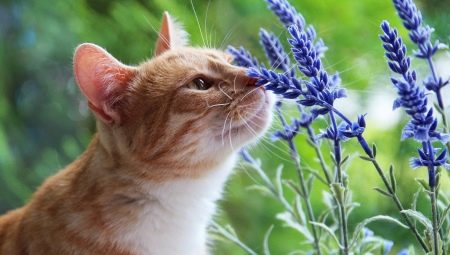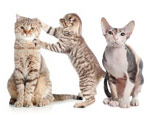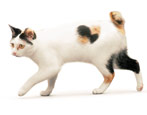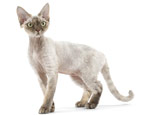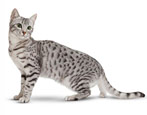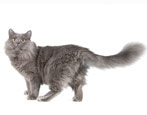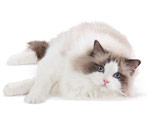Pets that are next to a person every day should feel their care and love. Too many cats have cats at home because they want to have an affectionate animal that will always be there. In order for cohabitation to be pleasant on both sides, it is important to prepare for the appearance of the cat, create a place for him to play and relax, and also exclude everything that may have an unpleasant smell that will irritate the animal. It is important to know what a particular cat breed does not like or to be able to determine what a particular animal does not like.
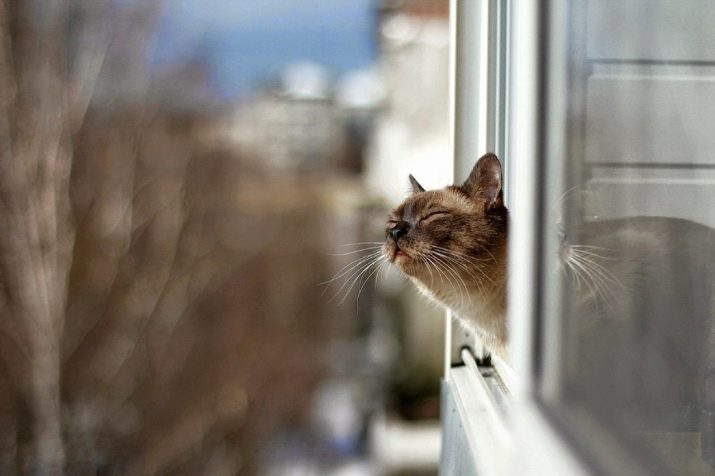
How do bad odors affect cats?
Like humans, cats have their own preferences regarding their favorite and least favorite odors. The former cause positive emotions and give a pleasant sensation, while the latter, on the contrary, irritate the cat and negatively affect his behavior.
Representatives of the cat family have a very developed sense of smell and smell well at a fairly large distance.
From the very beginning, these animals first of all begin to distinguish what is located near them precisely thanks to their nose, and only after that the development of the other systems takes place.
Cats have several favorite smells: this is the secret that human sweat glands secrete, which resemble cat pheromones during the mating period, as well as the aroma of valerian. The presence of these smells does not interfere with the owner and the pet likes it, but there are opposite aromas from which the animal will not be delighted. If the cat abruptly begins to behave improperly, for no apparent reason, it is worth checking if there is anything in the room that will smell bad for a furry beast. Among the most unpleasant aromas are plants, fruits, herbs and tinctures made on their basis. Cats do not like the aroma of strong alcohol, which will scare away from the place where people leave it.



To know about those aromas that are not to the liking of the cat, it is necessary in order to influence the disobedience of the pet caused by whims, and not some justified reasons. To wean a cat to go to the toilet in the wrong place, you can rub this area with some essence that will scare away the pet, and leave a few drops of valerian in the tray to attract him to cope with the need for the right place.
Based on this knowledge, special sprays have been created that can protect furniture and other places that are not suitable for a cat's toilet.
If the usual measures to combat disobedience do not help, then the chemical will work without fail. The smell of this remedy is very sharp and bitter, and in cats that feel it, a reaction begins in the form of strong salivation, causing discomfort in a domestic animal. The advantage of the spray is that it helps to neutralize the smell of urine, and the normal aroma is restored in the room.
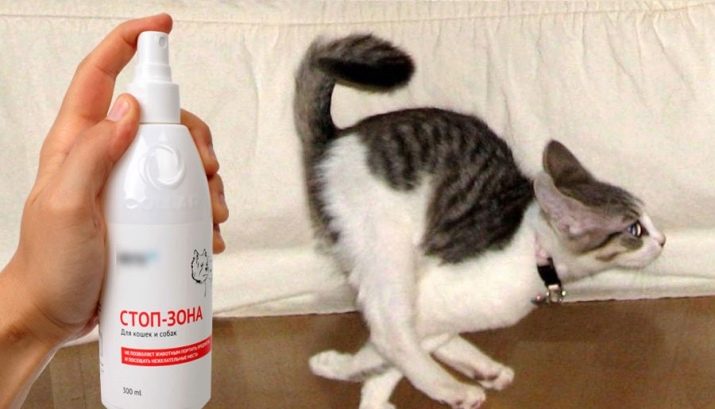
To determine what the pet's sense of smell is not to your liking, you can conduct experiments by letting it smell different foods, spices, fruits, vegetables and objects that have a certain aroma. A good owner is engaged in raising his cat, teaching him not only the regime of the day and the place for going to the toilet, but also other techniques. The ability to act on the animal and quickly adjust its behavior allows you to get a pet who will delight his master and live with him in absolute harmony.
Those or other smells that the cat catches with his nose can affect him in different ways:
- enhance or weaken sexual desire;
- increase or suppress appetite;
- activate or muffle the instincts of the animal.
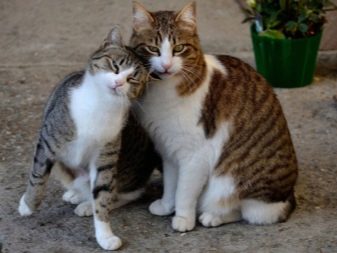
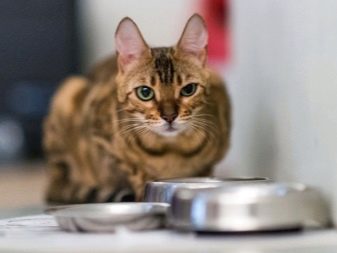
The use of strong aromas should be justified and should not harm the health of the pet. Too frequent behavioral correction trainings that involve the cat’s nose in work can harm the animal, causing him nervous system disorders, sleep problems and appetite. If you find at least some of the problems, it is worthwhile to postpone training and try to apply other methods.
The most unloved aromas
Cats have a well-developed sense of smell, so the presence of any harsh odors will be unacceptable to them. Most of all, pets do not like citrus fruits, because, in addition to a pronounced smell, they have a specific fruity aroma.
That is why all aromatic oils based on these tropical fruits are also disgusting to the pet.
There are animals that have radically different olfactory features, and they like lemons with oranges, the smell of tobacco and similar options, so you need to watch the beast to establish what exactly it likes and what frightens and makes you nervous.


Among the most unloved aromas are the following.
- Citrus - lemon, orange, grapefruit, which can be used to wean the cat from a specific place or re-education. You can use citrus juice or leave a crust of these fruits in a problem place, which will provoke the cat’s refusal to visit this area.
- Onion and garlic - use any of the options in a chopped or grated form to maximize its smell. The cat will immediately feel something was wrong and stop visiting the site that the owner marked. The effect will be quick, but there is also an important drawback in the form of a strong smell in the room, which may not be to the liking of the owner.
- Vinegar - It is a very active substance that strongly affects the cat.Vinegar can be used both diluted and in kind. It is important not to overdo it with the quantity, because the cat will hear the aroma even when the owner has time to forget that he used it.
- Essential oils - they are used by a person to activate certain body systems, and on the cat they have the opposite, inhibitory effect. Just a few drops will be enough to make the cat smell unpleasant for him.
- Ruta oil - A very powerful tool that can cause allergic reactions and dermatitis in cats, so it is important to use it carefully and in small doses, so as not to harm the pet.
- Variety of seasonings - All varieties of pepper, rosemary, thyme and cloves, which are so fond of humans, have a very bad effect on cats. If you often use these spices, you can cause a cat to cough and sneeze, exacerbating his health condition.



All strongly smelling agents affect cats in different ways:
- cause a strong sense of disgust;
- become a cause of anxiety and stress;
- the pet has a feeling of fear.
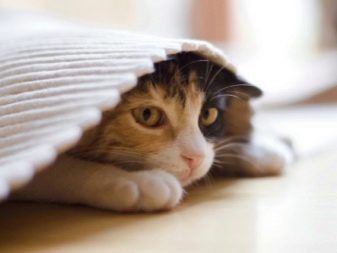
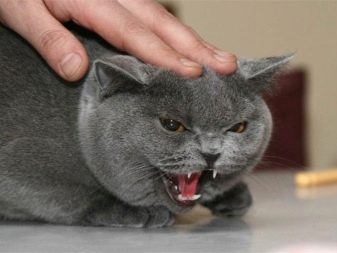
In each specific situation, it is necessary to carefully choose a tool in order to get the right effect from its use. It is extremely important to use any odors in a moderate amount and for a short period, because cats hear the presence of an unpleasant odor for a long time after a person stops catching it.
How to use to scare away?
The need to use odors unpleasant for cats against them is due to a number of reasons, among which:
- going to the toilet in the wrong place;
- excessive interest in indoor flowers with possible negative consequences for them;
- increased interest in human food;
- “Occupation” of a particular territory with attacks on those who enter or claim it.
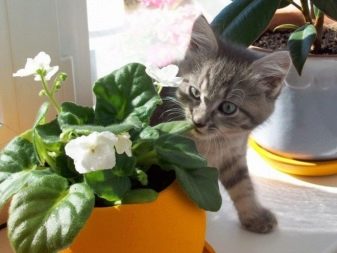

To get rid of the unpleasant smell of urine that remains in the room after going to the toilet in the wrong place for this, you can use the following tools.
- Vodka - All surfaces are rubbed with it, which allows you to quickly eliminate the unpleasant cat smell, but another problem arises - the presence of a persistent alcoholic aroma that can be removed only by prolonged ventilation.
- Manganese solution - this product should be concentrated enough to rid the house of an unpleasant odor, but if the crystals do not completely dissolve in water, spots will remain from the substance, especially on fabric surfaces.
- Lemon juice - you can prepare it from water and lemon or dilute the powder composition. This tool helps to remove unwanted odor and prevents repeated tricks of the furry beast in the same place.
- Vinegar solution - Dilute with water in a ratio of 1: 3 and wipe hard surfaces. If you need to apply to fabrics, it is best to use a spray bottle and remove excess moisture with paper towels or towels.
- Soda - to get rid of the smell of urine completely, you need to sprinkle a place of cat tricks with soda and fill it with hydrogen peroxide, leaving it for some time. You can apply this procedure at night, after which you can wipe the contaminated area with quality. It is undesirable to use this option on fabric surfaces, since stains remain from the product.


In the event that the pets began to climb the table or walk along the window with indoor flowers, it is necessary to immediately take measures to stop such acts. In the case of flowers, you can lay the skins of oranges on the windowsill or add zest to the ground. A good deterrent will be the use of feces of feline enemies - fox and coyote. If we are talking about a table, then you can use perfumes or essential oils that process the surface. In addition, you can leave a moistened sponge on the surface.
Choosing one or another option to combat cat disobedience, it is worth initially trying all the harmless methods of exposure and only after revealing their helplessness, try aromatherapy, which will cause strong negative reactions of the animal.
In some cases, it is possible to teach the pet to behave correctly, and in some, the opposite effect is obtained, since the cat develops panic attacks and other disorders of consciousness that can harm others.


Another problematic situation that summer residents or those who have a garden may face is the excessive interest of their cat or other people's animals in the land. The cat garden is associated with a tray, so they can relieve themselves there by doing this often, which is unlikely to please the owner. To deal with this problem, you can apply several tactics.
- Fertilize and moisten the territory of the garden, that will repel the desire of cats to travel on it, let alone go there to the toilet, because they are clean animals and will not climb into the mud.
- It’s worth inspecting the area for places through which cats enter the garden and eliminate them. If none were found, it is worth making a small ravine near the fence and filling it with gravel, which cats really dislike.
- If you can't fight animals, then you can select for them a certain area where they will spend time without spoiling the crop on the other beds. To achieve this result, it is worthwhile to fence off a small area, cover it with sand and irrigate it with a small amount of valerian, which will immediately attract animals and distract from the rest of the territory.
- To scare away unwanted guests, You can plant those plants that emit an unpleasant and harsh aroma. This is bitter pepper or dog coleus.



Any fight with tricks should be moderate, without excesses and harm to animals, so you should be as careful as possible in choosing means to scare cats in each case.
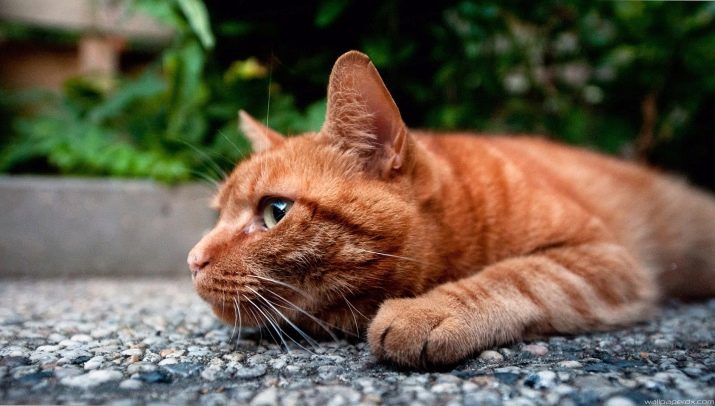
Precautions
Before starting educational activities for weaning a cat from some bad habit, you should think carefully about the choice of the method of exposure. The age of the animal, its gender, nature and behavior - all this should be considered when choosing. Initially, it is worth using the mildest tactics and looking at the behavior of the animal. For some pets, even such restrictions will be global, and they will cease to be naughty, while for others, much more serious options will be required.
If it was decided to deal with improper behavior with the help of strong odors, you need to make sure that the cat is completely healthy and does not have allergic reactions to the particular flavor that is selected for use.
The second, no less important factor is the health of the owner. Do not forget that a person may also be allergic to pungent odors, and instead of training a pet, you can seriously spoil your own health.


If a means of exposure acceptable to all is found, it is necessary to start using it from the smallest dosages and leave it for a short time, then clean and carry out high-quality wet cleaning. The use of odors does not bring satisfaction to the animal, it annoys him and causes discomfort, so you should not torment your pet for a long time.
As soon as progress in training is planned, it is worth stopping the use of aromatic products and praising the pet for good behavior. If the negative situation repeats, it is worth repeating the method until the moment when it begins to bring positive results. In the event that the pet shows any signs of allergy or abnormal behavior, any experiments should be stopped and shown to the veterinarian.
Find out what smells affect cats more effectively from the video.
